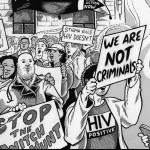When President Trump suggested in early January that he might keep portions of the federal government shuttered and unfunded for “months or even years,” observers would have been forgiven if they took his threats at less than face value. Today, amid what is now the longest government shutdown in U.S. history, the willingness of Trump and the majority of Congressional Republicans to indefinitely refrain from funding roughly a quarter of the federal government unless $5.7 billion is appropriated for the construction of the President’s border wall cannot be so idly dismissed.
At this point, there does not seem to be any objective harm or negative consequence from the partial government shutdown that would derail the Trump administration’s unwavering demand for border wall funding. Recently, 800,000 federal workers and their families missed their first paycheck as a result of the shutdown, and the administration’s bottom line was unmoved, responding instead by calling 50,000 furloughed federal employees back to work without pay.
This week, it was reported that nearly 10,000 companies that contract with federal agencies hampered by the shutdown are being negatively affected, placing up to 4 million more workers at risk of losing pay and potentially pushing the U.S. into an economic contraction. The Trump administration remained unfazed, with one administration official saying that they are currently game-planning for the shutdown to continue until at least the end of February.
As they have since the beginning of the 116th Congress, House Democratic leadership continued trying different legislative vehicles to reopen the government to no avail. Last week, the House passed a $12.14 billion disaster aid package that included a three-week continuing resolution (CR) that would have funded the agencies currently impacted by the seven outstanding Fiscal Year 2019 appropriations bills that have yet to be passed. If the aim of the legislation was to try and entice GOP members of Congress to tentatively end the shutdown by attaching the CR to bipartisan disaster relief, the bill missed the mark. Only six Republicans broke ranks to vote for the legislation and Senate Majority Leader Mitch McConnell (R-KY) has continued his refusal to take up any House-passed spending bill in the Senate unless border wall funding is attached to it.
However, not all of the news coming from Capitol Hill concerning appropriations this week was bad for people living with and affected by HIV. Thanks in large part to the tireless efforts of HIV advocates here in Washington, DC, and all across the country, House Appropriations Chair Nita Lowey (D-NY-17) submitted a spending bill yesterday that would fund the Housing Opportunities for People With AIDS program at $393 million for FY19, an increase of $18 million over the previous year. This $393 million in HOPWA funding reflects the original House committee version of the bill that was supported by AIDS United and the AIDS Budget & Appropriations Coalition, and we are hopeful that this amount will be reflected in whatever final appropriations legislation Congress passes.
AIDS United will continue to advocate for spending bills that prioritize and meet the needs of people living with and affected by HIV in the United States. For all the latest information on the shutdown and how it impacts funding for HIV programs, check back regularly with AIDS United’s Policy Update.








Comments
Comments